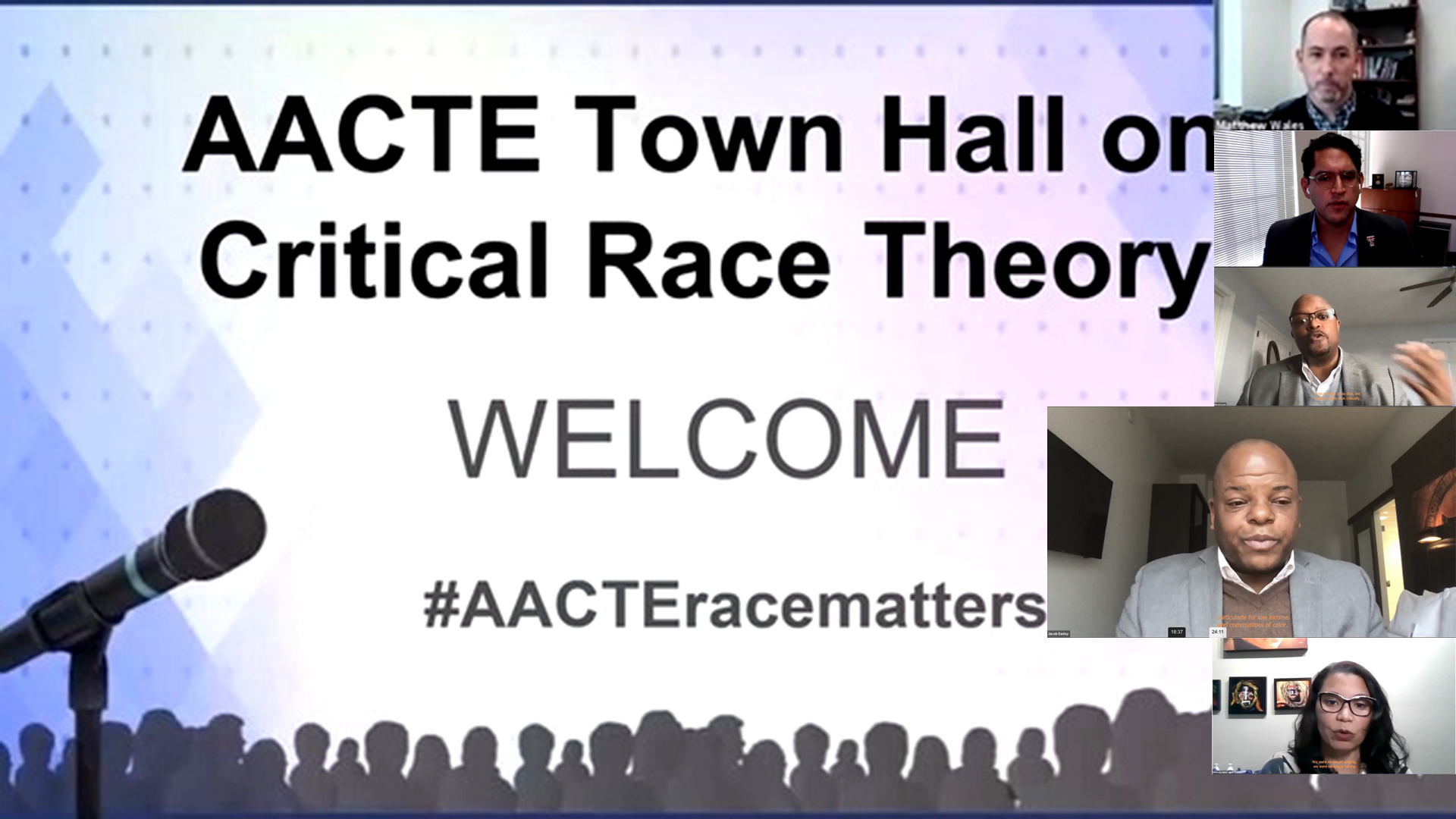Fostering Equity in Teacher Preparation
Dr. Jacob Easley II, Dean of Touro College Graduate School of Education, Participates in AACTE Town Hall for Critical Race Theory

On November 19, Touro College Graduate School of Education dean, Dr. Jacob Easley II spoke as a panelist for the American Association of Teacher Education’s (AACTE) inaugural virtual town hall. Dr. Easley joined five other deans of graduate schools of education to address the integral role educator preparation programs play in dismantling systemic racism. He addressed ways deans and faculty at colleges of education can improve curricula and practices to promote diversity, equity, and inclusion (DEI). We spoke with him briefly about his remarks.
What do you think is the first step education preparation programs can take in dismantling systemic racism?
First and foremost, before you can take any concrete steps to combat systematic racism, you must have a conversation about it and know the appropriate way of facilitating that conversation. If you do not have someone on your campus who knows how to have this conversation, it might be important to reach out to centers that specifically focus on diversity and equity. Many of these centers are housed within universities. For example, the center we have at Touro College is The Lander Center for Educational Research. You will need a skilled facilitator because oftentimes we move into the comfortable or very abstract conversation that does not necessarily move us along. However, we have also found that maybe that is the entry point. When people begin to talk in the abstract, then we can build on that with some theoretical perspectives. It is important to hear other perspectives, particularly at institutions that lack diversity among their staff, and to understand the lives of students who might be different from faculty and about the students’ families and communities.
What happens after the conversation?
After the conversation, institutions must take concrete steps to form a strategic plan. It is mandatory that deans and their faculty make a commitment to equity in a way that drives pedagogy, how we think about supporting faculty research, professional development, and our partnership conversations. I'm based in New York, and we were fortunate to work with a school district in which the chancellor is championing equity. But that does not mean there aren't any major problems. We know there are major problems in New York City around issues of equity, particularly for low-income populations and communities of color. This is the framework of how we think about our programming by addressing major questions: Who has access to our programs? Are our nation’s programs designed for the majority of teachers, or are our programs open and welcoming to other communities? Does our curriculum represent the dignity of multiple communities, particularly communities of students that we serve in P-12 schools? It is important to remind both our students and faculty that we are preparing all our teachers to work with all children, irrespective of their location within the borders of the state. I think that helps to frame the conversation differently around how we think about representation, how we think about our curriculum, and how we think about our commitments.
Can you tell us a little about curriculum changes that can foster equity and the notion of a ‘curriculum of dignity’?
The challenge is the idea that we can talk about democratic practices, as long as it serves the structure to keep those who are in power in power. This comes at a cost to others. The next generation needs to see themselves in the curriculum that they study, they need to have their ways in which they communicate, and their own cultures honored and respected. That's what we mean by curriculum of dignity. This should not only be reflected in teacher education, but in other disciplines as well, working with our colleagues in arts and sciences. So that means a broader university conversation around how we fully respect those perspectives?
This is my third year as the dean of the Touro College Graduate School of Education. Here, we have begun to think about how to refashion our curriculum to focus on issues of identity. Because we live in New York City, we realized that we have a vast number of resources, meaning the city itself, particularly around cultural and historical resources that can help our faculty and our students to better understand themselves and the lives of others. In New York, almost all cultures are represented, and we have cultural resources and centers that exist to educate learners in a curricular fashion. For example those who are not familiar with Jewish history can avail themselves of one of the Jewish cultural centers, or for those who aren't familiar with African American culture and society they can visit the Schomburg Center for Research in Black Culture in Harlem.
What do you think is the role of teachers in fostering diversity, equity, and inclusion?
Teachers are advocates and some of the most important voices when it comes to pushing this issue to the forefront. As institutional leaders, the question for us becomes: How can we help our teachers become advocates for issues of equity, access, and dignity? When candidates, teachers, leaders, and counselors leave our programs, then it is up to them to carry on this work. That sometimes can be quite difficult, uncomfortable, and daunting, particularly when it comes to issues about race. You need the skills, tools, and resources to be able to articulate one's thoughts around these issues, and to be an advocate.
Watch the full video recording of the AACTE Town Hall.

